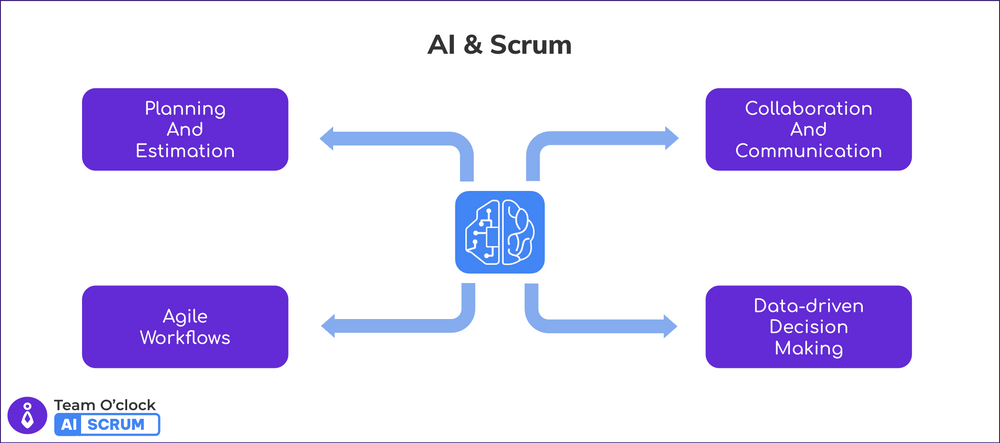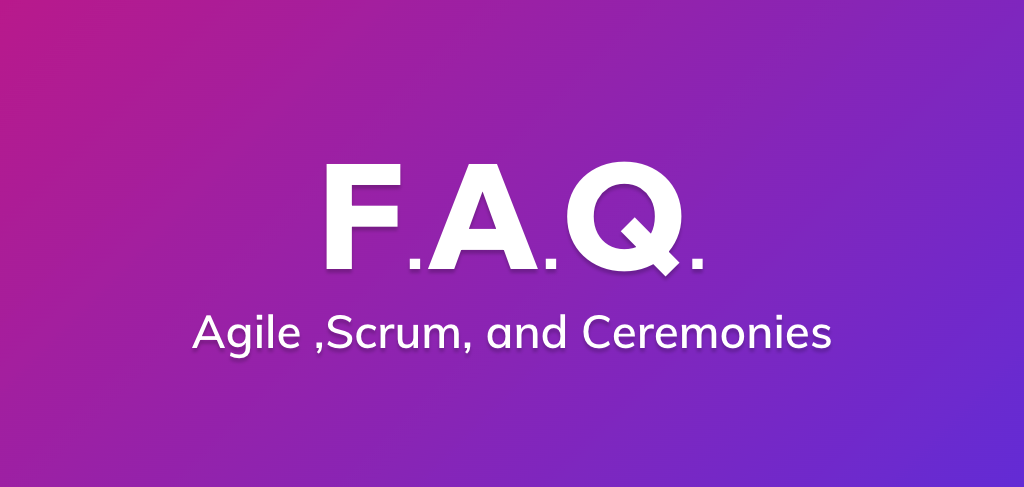
Unlocking The Power Of AI: Revolutionizing Scrum Teams

Artificial Intelligence, or AI, has emerged as a transformative technology, revolutionizing various industries and reshaping how businesses operate. AI refers to developing computer systems that can perform tasks that typically require human intelligence, such as visual perception, speech recognition, and decision-making.
With its ability to process vast amounts of data and learn from patterns, AI has become an invaluable tool for organizations seeking competitive advantage.
AI and Scum Teams
In the context of Scrum teams, AI plays a significant role in streamlining and enhancing the efficiency of their operations. Scrum is an agile framework that facilitates collaboration among development teams on complex projects.
It emphasizes iterative progress through short sprints and regular meetings, known as Scrum events. AI can act as a facilitator during these agile ceremonies, automating repetitive tasks, predicting project outcomes based on historical data, and providing real-time insights into team performance.
By analyzing past project metrics and identifying patterns in team behavior, AI can help Scrum teams make informed decisions regarding resource allocation, task prioritization, and risk management.
Furthermore, AI-powered tools enable seamless communication among team members by automating notifications about task updates or changes in project scope. This ensures that all stakeholders remain well-informed throughout the project lifecycle.
What You Need to Know about Scrum Teams
Scrum is an agile project management framework that enables teams to deliver high-quality software products efficiently. It is based on iterative and incremental development, allowing teams to continuously adapt to changing requirements and deliver value.
The core principles of Scrum include transparency, inspection, and adaptation. A Scrum team has three key roles:
the Product Owner,
the Development Team, and
the Scrum Master.
The Product Owner is responsible for defining and prioritizing the product backlog, ensuring it aligns with customer needs and business goals. They act as the bridge between stakeholders and the development team.
The Development Team consists of professionals responsible for turning product backlog items into potentially deliverable increments of work during each sprint. They collaborate closely with each other to ensure effective delivery.
The Scrum Master encourages the team, removing any obstacles or impediments that may hinder their progress. They also help to ensure adherence to Scrum principles by coaching team members on best practices and guiding them through any challenges they may face.
Scrum Teams and The Challenges
Despite its many benefits, Scrum teams often face challenges in delivering successful projects. One common challenge is managing changing requirements throughout a project's lifecycle. As customer needs evolve or new information emerges, teams may struggle to adapt quickly while maintaining project momentum.
Another challenge lies in estimating work accurately during sprint planning sessions. This can lead to underestimation or overcommitment of tasks, resulting in missed deadlines or compromised quality.
Furthermore, communication within large or distributed teams can be challenging when working remotely or across different time zones. Effective collaboration becomes crucial for maintaining productivity and ensuring everyone stays aligned toward project goals.
AI and Scrum Teams: The Benefits
1. Enhancing Planning and Estimation
AI can significantly enhance the planning and estimation processes for Scrum Teams. AI can analyze historical data from previous sprints through machine learning algorithms to provide accurate estimations for future tasks. This way, teams can better determine realistic deadlines and allocate resources effectively. Additionally, AI-powered tools can automatically generate detailed project plans by considering dependencies, team capacity, and other factors that impact project timelines.
2. Improving Collaboration and Communication
Communication is crucial within Scrum Teams as it drives collaboration among team members. AI-powered chatbots or virtual assistants can facilitate seamless communication by providing real-time feedback on tasks progress or answering common queries from team members. These intelligent assistants can also help schedule meetings, send reminders, or suggest possible solutions to problems based on past experiences.
Agile workflows involve continuous iteration and improvement cycles that require meticulous tracking of tasks, progress monitoring, and prioritization of work items. AI algorithms can analyze large volumes of data to identify patterns in user behavior or task completion rates to optimize workflow management systems accordingly. This helps teams identify bottlenecks in their processes more efficiently and make informed decisions about resource allocation or sprint planning.
3. Optimizing Agile Workflows
AI algorithms' capabilities include analyzing and optimizing the flow of work in Scrum teams. By leveraging AI, teams can automate repetitive tasks, identify bottlenecks, and streamline the agile workflow.
AI can be used in backlog management, assisting in prioritizing user stories and estimating their complexity. It can also help in sprint planning by recommending the number of tasks to be taken up in a sprint based on historical data.
Additionally, AI algorithms can intelligently distribute tasks among team members, taking into account their skills, availability, and workload.
4. Driving Data-Driven Decision Making
Data is valuable for any organization striving for continuous improvement through evidence-based decision-making. With AI's ability to process vast amounts of data quickly, Scrum Teams can leverage this technology to gain insights into various aspects such as team performance metrics or customer feedback analysis. By analyzing these datasets using machine learning techniques like clustering or predictive analytics models, teams can make informed decisions that lead to better outcomes.

To sum up, AI has the potential to revolutionize Scrum Teams by unlocking a plethora of benefits. It enhances planning and estimation processes, improves collaboration and communication, optimizes agile workflows, and drives data-driven decision-making. By embracing AI technologies, Scrum Teams can maximize efficiency and productivity and ultimately deliver high-quality products or services.
Conclusion
Embracing the power of AI can truly revolutionize Scrum teams by streamlining processes, enhancing collaboration, and optimizing project outcomes. As technology continues to advance rapidly, organizations need to recognize AI's potential in transforming agile project management practices for a more efficient and prosperous future.

The meeting facilitator
for your remote teams
Efficiency, collaboration, and speed
with AI-assisted retrospectives, daily standups, and planning poker meetings.







